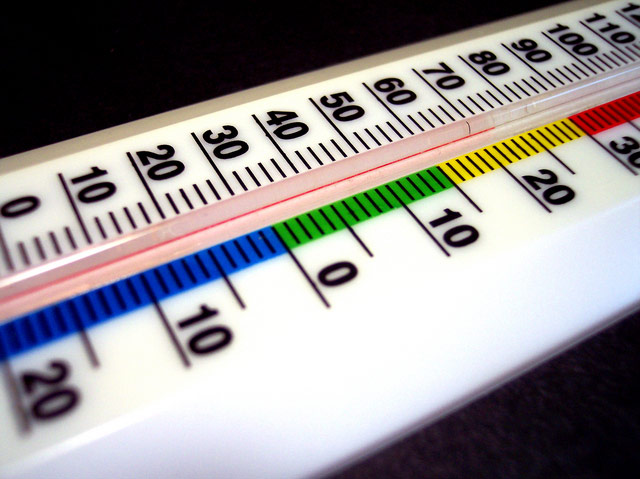Global Warming to Fuel More Childhood Fevers

Warmer temperatures promised by climate change researchers could affect children more than adults in the form of more frequent fevers.
An Australian researcher compared emergency room visits for children under age six to climate data. Higher temperatures outside were related to more visits by children with fevers and gastroenteritis.
'We showed that maximum daily temperature is strongly associated with emergency presentations of fever and gastroenteritis among young children, with UV index negatively associated with gastroenteritis," said Lawrence Lam, a pediatrics lecturer at Sydney University.
The possible reason: Children's bodies can't cope with extreme changes in temperature as well as adults.
"The results from this study suggest a detrimental effect from climatic changes, particularly in terms of maximum temperature, on children's health," Lam said. "As global warming is becoming more apparent, there is an urgent need for more in-depth and thorough investigation of climatic factors on human health, especially in early childhood."
The study, announced today, is detailed in the International Journal of Environmental Health Research.
Lam found no connection between climate and emergency visits due to respiratory problems. Other researchers have speculated that global warming will fuel increased allergies.
Get the world’s most fascinating discoveries delivered straight to your inbox.
More to Explore
- Surprising Results of Global Warming
- Emerging Environmental Technologies
- Video: Goldilocks and the Greenhouse
Global Warming Features
- Earth Will Survive Global Warming, But Will We?
- Strange Weather's Loose Link to Global Warming
- Global Warming or Just Hot Air? A Dozen Different Views
Recent Climate Change News
- Warm Global Temperatures Set Record Last Month
- World's Largest Science Group Chimes in on Climate Change
- 113 Nations Agree ... Climate Change 'Very Likely' Caused by Humans



